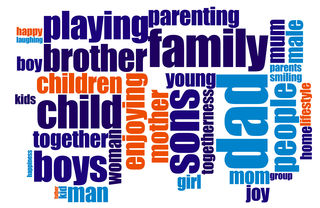10 Things to Know About Parent-Child Relationships


1) There are great benefits of effective parenting to child development under normal circumstances, and even greater benefits in the face of risk. There are certain risk factors that are unique to parent-child relationships. The relationship processes involved may depend on where the risk resides … in the child (e.g. developmental disability, prematurity, behavior problems), the parent (e.g. psychopathology), or the family context (e.g. economic hardship, minority status). Child developmental delay, child diagnosis of ADHD/ODD, and low family income are associated with lower positive parenting scores, a measure of a “resilient parent.” Maternal education acts as a protective buffer to improve resilient parenting for younger children (aged 3-5) while maternal health is protective for 5 year olds. One of the greatest protective factors is maternal optimism, which is effective for children ages 3 to 8. Ellingsen, et al. J. Intellectual development research, July, 2013. Ellingsen, et al. Research in developmental disabilities, April, 2014.
2) Children with developmental delays are more likely to have behavioral issues. The extent of a child’s behavior problems is a strong contributor to parenting stress, more so than the child’s cognitive delay. Baker, et al. Am J Mental Retardation. Dec, 2002.
3) Parental warmth and controlling, in a positive way are the two most important parental attributes that help to create positive effects. In research terms this is parental affect and sensitivity. Positive emotional reactivity and self-regulation are important parental factors in developing healthy children’s temperament. Bates (link is external), et al Handbook of Temperament, Guilford Press, 2012.
4) Mothers and fathers share some childrearing attributes and effects, but also differ in important ways that create unique relationship qualities. (Stevenson & Crnic, 2015; Crnic et al., 2009). Both mothers and fathers of children with borderline intellectual functioning have more negative controlling parenting (child age 5-6) than did parents of typically developing children. In turn, those children with borderline intellectual functioning showed more difficult behavior. It is interesting that negative paternal behavior is predicted by earlier child behavior while negative maternal behavior predicts child difficulties. Fenning, et al. Journal of Family Psychology, April, 2014.

6) Attunement is an important factor in parent-child relationships. This involves the dynamic and complex patterns of sensitive mutual understandings and interactions between children and their parents. Attunement is characterized by correspondences in biological, affective, cognitive, and behavioral domains. As Dr. Bornstein notes, “when interactions with caregivers fall out of attunement by becoming mistimed or mismatched, children and parents both experience distress” (2015). Coburn, Crnic & Ross Infant and Child Development, 24, 2015.
7) One parent’s hostility might disrupt the other parent’s ability to maintain a positive relationship with his or her children. The father-child relationship appears to be especially vulnerable to parental hostility.
8) Stress is ubiquitous and reflected in many different contexts that can affect the quality of parent-child relationships. In particular, stress-effects associated with parenting (challenging child behavior and parenting tasks) may be greater than the effects of general life stress on families).
9) Maternal social factors and infant temperament can significantly influence the development of infant neurobiology. Maternal social factors may either promote or strain parent-infant adaptation over time. Prenatal psychosocial stressors significantly affect infant health and development. Prenatal maternal depression and lack of social support predicted higher cortisol among infants with more temperamental negativity. In addition, mothers with negatively temperamental infants were more likely to show maternal distress and less social support from prenatal to 12 weeks postpartum.
10) Father-son relationship is the most susceptible to crossover effects of parental hostility (affected by hostility from the other parent), while the father-daughter relationship seems to be more protected in the early years. Journal of Child and Family Studies. July, 2014.
Here’s Whitney Houston’s 5 tips for parenting which is The Greatest Love of All:
1) I believe the children are our future
2) Teach them well and let them lead the way
3) Show them all the beauty they possess inside
4) Give them a sense of pride to make it easier
5) Let the children's laughter remind us how we used to be
No comments:
Post a Comment